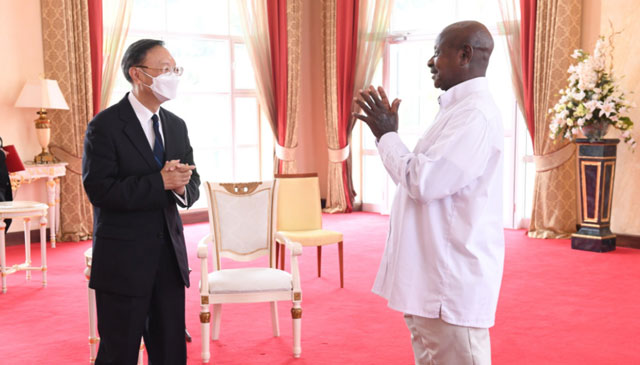
COMMENT | Ronaldo Kato | The Forum on China-Africa Cooperation (FOCAC) ministerial meeting which starts this weekend in Dakar, Senegal comes at a critical time for both China and Africa.
The pandemic has left countries reeling, economies faltering and people vulnerable. It has reset global politics, widened the gap between the Global North and the South, and tested friendships and alliances.
The China-Africa ties were no exception. As Beijing shipped millions of test kits, tonnes of PPE and masks to help countries in Africa respond to the pandemic just as some African countries had sent supplies to Wuhan in January 2020, something unfortunate happened in Guangzhou.
Several African citizens were moved from their hotels and apartments as health officials enforced strict pandemic control measures. Some were in trouble for immigration-related offences. Many spent nights on the streets.
It is evidence that even the most mutually respectful relationships suffer shocks.
African envoys in Beijing quickly lodged representations. Addis Ababa contacted Beijing too.

The Guangzhou events had been weaponized by some forces to sow distrust and division, and to erode the goodwill China had amassed from its supplies of pandemic control gear to Africa.
After days of diplomatic activity, the matter was resolved. Guangzhou apologized to the affected individuals, cautioned landlords and hotel owners, as well as health officials.
FOCAC is the primary framework and mechanism through which China and Africa engage. FOCAC is the glue that holds together over 2.6 billion people and has kept them talking, consulting and exchanging.
Months before the global North started sharing their vaccines, embarrassed that vaccine hesitancy had rendered their hoarding efforts useless, Africa had welcomed life-saving jabs from Beijing.
As the world pleads with developed countries to lift patents on vaccines, Morocco and Egypt are already producing Sinovac jabs locally.
With Africa being the least vaccinated continent, Chinese vaccines, as well as the technology to make them will be key to achieve the continent’s recovery efforts.
Of course China-Africa cooperation has seen worse days. Before Guangzhou, many western officials and media, without evidence decided to pick on Chinese lending to Africa and other developing countries.
‘Debt-trap’ is what they called credit extended to countries to build critical infrastructure. This trope sought to portray African leaders and their countries as victims and Beijing as the predator.
This infantilization of African countries has ended with the realization that there is no appetite for great power competition on the continent. That people could see through the bad faith of developed countries slandering a country trying to invest in a continent they deem too risky.
The Belt and Road Initiative (BRI), while it has things to improve about it, remains Africa’s only [and best] to achieve critical infrastructure needed by countries to participate in the global economy.
At the Dakar meeting, Chinese and African officials will remind themselves of Africa’s huge infrastructure gap and will likely choose to keep going, and not relenting.
Agenda 2063
FOCAC is also a platform that the Global South will use to raise its voice on key global issues such as climate change, vaccines and pandemic recovery.
*******
Ronald Kato is a senior Ugandan journalist at Africanews and a China-Africa Press Centre Fellow. He is interested in China-Africa relations and how China is covered in the news media.
The post FOCAC and the resilience of China-Africa ties appeared first on The Independent Uganda:.
from The Independent Uganda: https://ift.tt/2ZoXkow
0 Comments